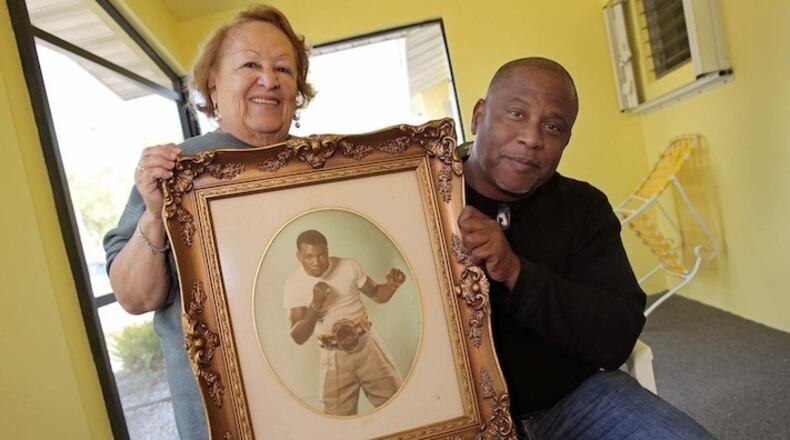Luz Selenia Paret never imagined that by falling in love with a boxer, at some point the blows would also fall on her heart.
And how they did.
The five years they lived together were unforgettable, unrepeatable, but they seemed to last about as long as the flicker of a match.
The beginning of the end occurred a fateful March 24, 1962, at Madison Square Garden in New York. That night, then-world welterweight champion Cuban national Benny "Kid" Paret lost his title to Emile Griffith by KO at 2.09 minutes of the 12th round in the third matchup between the two boxers.
It was terrible.
Paret was hooked on the ropes in a corner. After seeing the replays numerous times, Griffith coach Gil Clancy said the Santa Clara fighter was given 17 unanswered punches in just over five seconds. Some of them also smashed his head against the post that held the ropes of the ring.
When referee Rudy Goldstein separated the fighters, Paret slid to the floor. He was taken out of the ring on a stretcher and transported to Roosevelt Hospital in Manhattan, where he was rushed into emergency surgery to remove several blood clots. Doctors found evidence of brain damage.
John Crisp, then one of the hospital's chief surgeons, said there were 10,000 chances against one that Paret would regain "total control of his body." On April 3, without having regained consciousness, the Cuban fighter died at the age of 25, a victim of a brutal beating.
Fifty-five years following the fatal blow, Paret's widow, known among her friends simply as Lucy, still has a hard time talking about it. The wound remains raw. As soon as someone asks her for details, she breaks down, tears staining her cheeks. She recovers only when evoking the man she loved, the only one in her life. She never remarried because she did not want a stepfather for the two children she had with Benny.
"He was very attentive and noble," said Luz Selenia, full of nostalgia in her apartment in Cutler Bay, where the former New Yorker now lives. "At that time, Cubans were arriving in New York, fleeing from Fidel Castro, and my husband would give them a hand, help them out. He spent whatever he had to cover their needs, he was very humble."
Luz Selenia met Benny in 1958. She was 17 and danced at the Tropicana Latin club in the Bronx, owned by Cuba native Manuel Alfaro, who also served as Paret's boxing manager.
"One night Benny went to the club and Alfaro called me over to the table where they were both sitting," Luz Selenia recalled. "Benny invited me to one of his fights. I did not like it, do not like it and will never like boxing, but I went. Then he invited me to the movies."
What Luz Selenia liked most about Benny was his sense of joy and that he was a great dancer.
Paret made his boxing debut in May 1958 in the United States with a match against Bobby Shell, at St. Nicholas Arena in New York, having won 22 fights and lost two in Cuba, where he would never fight again.
Born in Puerto Rico, Luz Selenia was raised in New York. Her mother died when she was young and her father remarried. She chose her independence. And when she met Benny she felt her life was headed in the right direction. She moved in with him and in 1960, Benny Jr. was born. In February of that same year the couple married.
The night of the tragedy she was in the house Paret had bought in Miami, since she was pregnant with her second child and had no desire to travel.
The bout was broadcast live on NBC. In April 1961, at the Convention Center in Miami Beach, Griffith had knocked out Paret in the 13th round and had stripped him of his world champion crown. Five months later, Paret regained the belt with a decision win divided in 15 rounds. The two would face each other again in a third and final combat.
It is said that there were about 7,500 people at Madison Square Garden and an estimated 14 million more followed the fight on television, which would be the first time a deadly match was broadcast on live TV. It was a real shock for viewers.
Twenty-one months later, a second deadly scene would be broadcast when Jack Ruby shot point-blank in front of the TV cameras and killed Lee Harvey Oswald, the alleged assassin of President John F. Kennedy.
After the tragedy, Luz Selenia remained in Miami, the place where Benny felt at home.
"Benny had bought a house in Miami, where he liked to live," Luz Selenia said. "I met him 60 years ago and he died. He was a man who made his living in a rough sport, but he had a generous heart. I don't even know what made me fall in love with him."
Griffith died on July 23, 2013, at age 75.
About the Author
Keep Reading
The Latest
Featured


